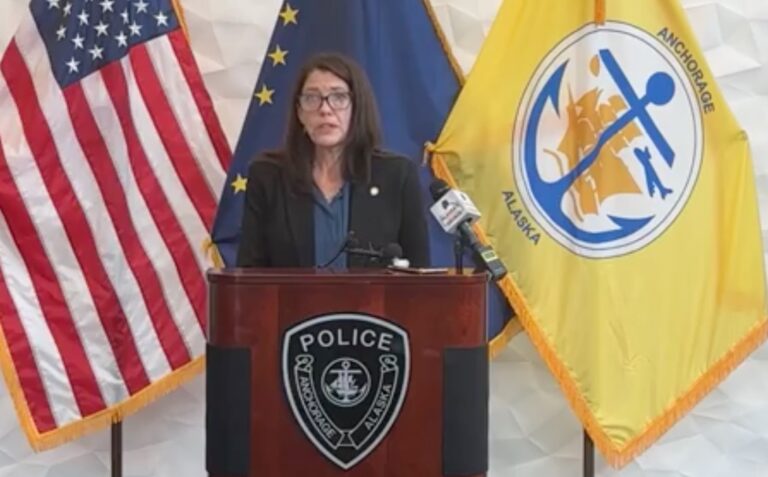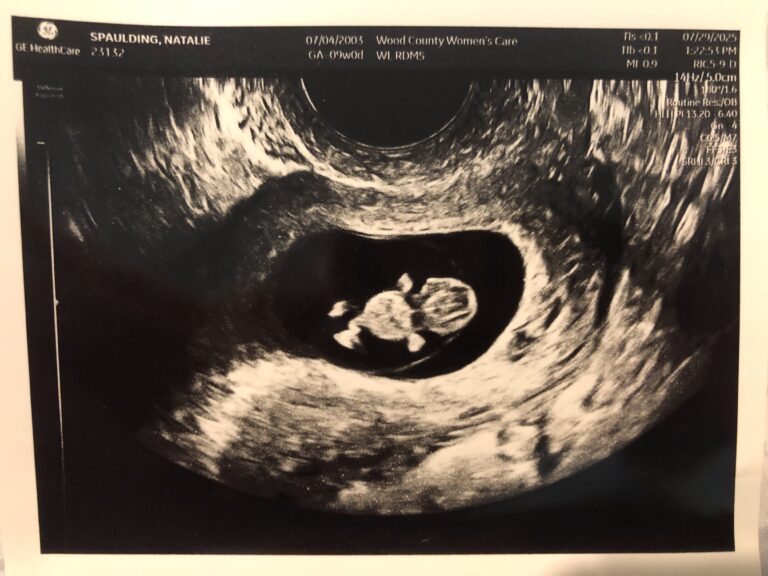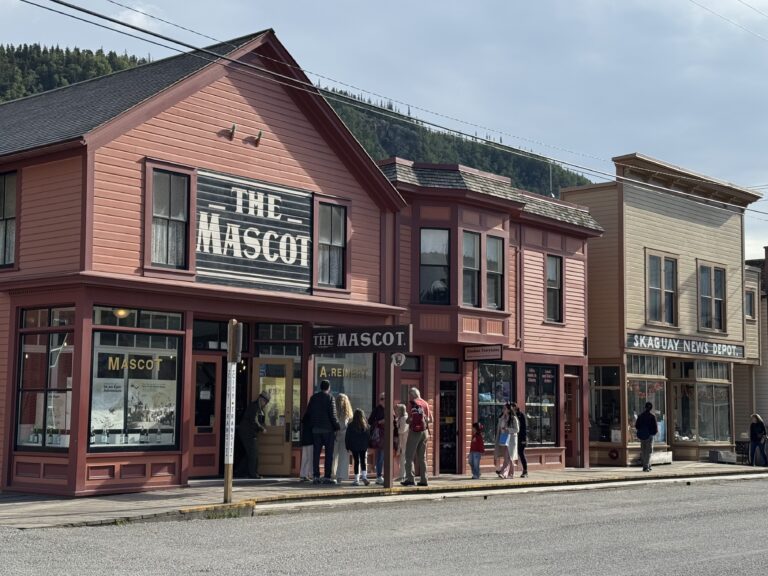The People of Alaska vs. The Legislature
Part V: Ghost Busting: Dispelling Anti-PFD Phantoms
The decision about the PFD belongs with the people; the legislature should trust them with a vote on this question: Should the statutory distribution formula for the PFD, as originally conceived and implemented in 1983, be added to our constitution by amendment?
When the public votes, they must be informed. Here, we present the most common objections to the PFD and try to answer them. It is for the people to decide the legacy we leave to the future.
Objection: Governor Wally Hickel’s “owner state” is a sham or worse, socialism.
Response: Read Walter J. Hickel’s book “Who Owns America?”—a must-read for every U.S. citizen. As Secretary of Interior under Nixon, Hickel had a solid grasp of the constitution and our obligation to conserve and to share the commons.
Those who conceived the PFD—men like Governor Jay Hammond and Clem Tillion (Senate President at the time) were war veterans and opposed socialism. The PFD’s philosophical underpinnings reject socialism and the elite capture of resource rents (communism and socialism) by channeling a modest royalty directly to citizens. It’s a model for Alaskans and for resource-based governments everywhere.
Objection: Alaska has a revenue problem. If we pay a PFD, we will just have to collect it in more taxes.
Response: The threat of taxes is a fear tactic used by legislators to neutralize opposition to the PFD from the business community. This strategy has worked in the short term, allowing the legislature to dismantle inflation proofing and dividends.
The legislature elects to fund expanded benefits over the PFD, resist DOGE-like reforms, and override almost every attempt by the Executive to reduce spending. Alaska can sustain the PFD without taxing our citizens, but not until Alaska’s business leaders align behind the certainty that our legislature has a spending addiction and an accountability problem—not a revenue problem.
Objection: An ever-increasing dividend is not sustainable.
Response: This fear is unfounded. The PFD has never been—and will never be under the original formula— “ever increasing”. The amount of the dividend rises and falls with earned mineral income. Those who complain about increasing dividends simply want to spend more. They will not complain about the automatic growth of government spending created by a 5% POMV draw because they invented it.
Objection: The purpose of government is to provide for the collective welfare, not to distribute royalty payments to individuals.
Response: The purpose of our federal and state governments, and the enduring foundational principles embodied in them both, are in perfect harmony with the PFD. The collective welfare of all Alaska citizens is served by the PFD program.
Objection: Alaskan citizens do not hold individual property or other rights to land or minerals. Thus, the concept of citizens as “shareholders” with legal claims or interests in a royalty share or dividend is imaginary.
Response: We should investigate what rights, titles and interests we do have, and from where they originate. The legitimacy of Alaska’s Native land claims rest on sovereignty rights that are conceptually similar to those recognized as existing among all citizens at Statehood.
Alaska Natives fought hard to gain recognition of their rights. Today, all Alaskans should join the fight for the PFD, using the law and native precedent as guiding principles. The legislature’s position that Alaskans have no claim to a dividend based on law or equity is reminiscent of those who resisted native land claims in the ANCSA era.
Our democracy and legal system hold that every person is equal; that he has inalienable rights to pursue his happiness, which—when acted upon in the collective–form the basis of all power. The legal proposition that our liberties derive from individual sovereignty is a core principle. The “no rights” argument, on the other hand, represents the cornerstone of colonialism. It is an ideology born from power and conquest, or worse, communistic centralization of power over the people.
Governor Hammond understood “sovereignty” as a lasting value system, not just a legal construct. If all sovereignty confers upon a population is the absolute right to plunder today’s resources, humanity loses order. If, however, as Hammond articulated, sovereignty leads to a communal “ownership” mentality; to stewardship that is selfless but also self-serving; to fiduciary impulses to conserve, to share, and to curb unbridled development while also nurturing a just society —then humanity thrives.
Finally, title to certain public lands vest with the state of Alaska. However, our state was formed by free citizens acting independently by virtue of their sovereignty, inherent rights, and free will—which, when perfected, are supreme and perpetual. Technically, if Alaska were ever to cease to exist, the lands and assets would revert to a subdivision of citizens as the sovereign heirs.
Objection: The PFD is regressive, distributing money to people of wealth who do not need it, thus depriving it from those who do.
Response: Ethically, the PFD is progressive. It upholds distributive justice using a popular model: direct payment of a portion of royalties from depleted resources. In this way, it acts as restorative compensation to the people in equal share—present and future—instead of saddling them with higher debt and taxes.
Most Alaskans use their dividend wisely for their children’s health, education, and fun. Politicians create endless excuses to re-allocate PFD monies to fund their version of social engineering, which involves deciding the winners and the worthy.
Objection: The PFD feeds an entitlement mentality by government giving out “free money”.
Response: The PFD is not entitlement and hardly free; Alaskans work hard to build their communities. Plus, we do not witness much more than legislative lip service for limiting entitlements. However, the legislature is withholding something free but of far greater importance to Alaskans—the collective right to vote on the PFD.
The legislature sponsors entitlements by expanding them and funding their spiraling costs with little regard to how taxpayers can afford it. Increasingly, the legislature has paid for these increases by taking inflation proofing and a full PFD from the people.
Objection: Our representative democracy is designed to restrain populist impulses, especially self-serving ones like voting to allocate earnings directly to the people.
Response: The comparative societal benefits of the PFD relative to other spending has been documented and time-tested, so “pure democracy” is not the real threat. Rather, it is the abuse of concentrated power that now wishes to end the PFD program and to quash the people’s right to vote on it that stirs resentment. We allow direct referendum and petition by the people for precisely this reason. Our democracy assumes legislators will represent the people’s interests, not their own or those of special interests.
Objection: The PFD is an irresponsible way to spend government money; the dividend is not based on need.
Response: The PFD is a civically responsible way to apportion directly to citizens a small portion of income from natural resource extraction. The program is not based on need, but it reaches many who are in desperate need—while at the same time delivering something even more important: a tangible reminder of who is in power. We have many programs helping those in need, but none that honor the people’s status monetarily and equally as sovereign participants within a free democracy.
Objection: The PFD directs public money needed to pay for education and important social services.
Response: We celebrate the prophesy that the meek, not the powerful, shall inherit the earth. Mother Earth cannot be owned, only shared. What belongs to the people to be shared will be inherited by them.
Consumers of services can exercise freedom of choice, but dependents of government cannot. By promoting individual choice and responsibility, we improve outcomes and reduce costs. If one squanders his PFD, he will learn quickly. In situations of institutionalized care or repeated societal offense, a PFD can be garnered.
Objection: The three branches of government control the apparatus of the state; the individual has no role.
Response: Our constitution not only sanctifies the individual as the inherent source of all power, but it vests him, acting with others, specific powers. Some, like grand juries and the referendum, are significant.
Objection: PFD recipients squander their dividend.
Response: Some do, but most do not. Freedom means the right to choose, and the freedom to fail.
Objection: The PFD is welfare; it rewards people for doing nothing.
Response: Welfare is needs-based assistance and creates dependency. The PFD is a share of income from resources owned in common that have been depleted.
Objection: The PFD is a government handout, so it is really about Universal Basic Income.
Response: No. UBI is based on an entirely different philosophy—communism. UBI has very little in common with the PFD, which in many ways is the antithesis of UBI.
Check out previous articles in The Great Debate: The People of Alaska vs the Legislature:
Part I: Inflation-Proofing: Where’s the Problem?
Part III: The 49 Forward Plan Takes the Permanent Fund Backwards








